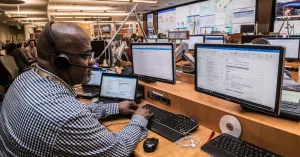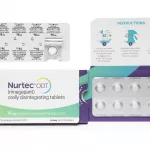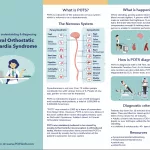Most people assume the only way to stay protected against COVID‑19 is to keep getting the same booster over and over. In reality, there are several scientifically‑backed options that can give you solid protection without repeating the exact same jab. Below, I’ll walk you through the most credible alternatives, when they make sense, and how to decide which path fits your life.
Quick Answer
If you can’t receive a traditional COVID‑19 booster—because of an allergy, a weakened immune system, or simple vaccine fatigue—there are FDA‑approved alternatives such as monoclonal‑antibody prophylaxis (e.g., Evusheld) and protein‑based vaccines like Novavax’s Nuvaxovid. Emerging platforms including programmable microcapsules and single‑shot vaccines are also on the horizon, promising long‑lasting protection in one go.
Why People Look
Everyone’s health journey is unique, and the reasons you might explore a booster‑shot alternative can be personal, medical, or logistical. Here are the most common drivers:
- Allergy or intolerance: Some individuals react to components in mRNA boosters (like polyethylene glycol). In those cases, a non‑mRNA option can be a lifesaver.
- Immunocompromise: People with conditions that blunt the immune response often don’t generate enough antibodies after a standard vaccine. A passive‑immunity product can fill that gap.
- Vaccine fatigue: Repeated appointments can feel endless, especially when travel or work schedules are tight.
- Access issues: Rural clinics may carry only certain brands, leaving you without your preferred option.
Understanding why you’re seeking an alternative helps you discuss the right plan with your clinician. If you’re curious about the broader picture of how vaccines move through vaccine stages, that knowledge can also guide your decision.
FDA‑Approved Alternatives
When I first heard about “Evusheld,” I was skeptical—was a medication really a substitute for a vaccine? The answer is nuanced, but the science is solid.
How Evusheld Works
Evusheld (tixagevimab + cilgavimab) contains two lab‑crafted monoclonal antibodies that sit on the coronavirus’s spike protein, blocking it from latching onto your cells. According to a U.S. FDA briefing, a single two‑injection dose can reduce the risk of symptomatic COVID‑19 by up to 83 % in people who cannot mount a strong vaccine response.
Is It a Booster Replacement?
Not exactly. Evusheld provides “passive immunity”; it supplies ready‑made antibodies for a limited time (roughly six to twelve months). Traditional boosters stimulate your own immune system to produce antibodies that linger longer. Think of Evusheld as a temporary shield you wear while your body works on building its own armor.
Who Is Eligible?
- Adults ≥ 12 years old weighing at least 40 kg.
- Individuals with severe allergic reactions to mRNA vaccine components.
- People with moderate to severe immunocompromise (e.g., organ‑transplant recipients, certain cancer therapies).
If any of these sound familiar, talk to your health‑care provider about whether Evusheld fits your schedule. Remember, it’s not a one‑size‑fits‑all solution, but for many it’s a lifesaver.
Protein‑Based Vaccines
When mRNA isn’t ideal, protein‑based vaccines step into the spotlight. Novavax’s Nuvaxovid™ is the most prominent example.
What Makes Nuvaxovid Different?
Instead of delivering genetic instructions, Novavax uses a purified protein that mimics the virus’s spike, combined with a powerful adjuvant called Matrix‑M. This design triggers a broad immune response that many people find well‑tolerated. A 2022 press release from Novavax highlighted that Nuvaxovid can be used as a first or second booster for adults, regardless of which primary series they received (Novavax).
Efficacy Compared to mRNA Boosters
Clinical data show that Nuvaxovid’s antibody levels after a booster are comparable to those seen with mRNA boosters, especially against the major circulating variants. The protein platform also tends to produce fewer systemic side‑effects (less fever, chills, and muscle aches). For those who experienced strong reactions to mRNA shots, this can be a game‑changer.
Emerging Tech: Single‑Shot & Microcapsules
Imagine getting one shot that protects you for years—no boosters, no follow‑ups. Researchers are making that vision real with programmable microcapsules and single‑shot platforms.
Programmable Microcapsules Explained
These tiny, biodegradable capsules enclose the vaccine antigen and an adjuvant. Inside, tiny “gates” open on a preset schedule (say, after 30 days), releasing just enough antigen to give your immune system a “reminder” boost. Because the release is controlled, you get a booster‑like effect without returning to the clinic. If you’d like a deep dive into the science, check out our programmable microcapsules article.
Single‑Shot Vaccines
Traditional COVID‑19 vaccines require two doses for the primary series and then boosters. A single‑shot vaccine condenses everything into one encounter by delivering a higher concentration of antigen and a potent adjuvant that sustains immunity for many months. Early trials in malaria vaccine delivery have demonstrated that a single high‑dose could achieve comparable protection to a multi‑dose regimen (malaria vaccine delivery). While still experimental for COVID‑19, the technology looks promising.
Benefits vs Risks – A Balanced View
| Factor | Monoclonal‑Antibody (Evusheld) | Protein‑Based Booster (Novavax) | Emerging Single‑Shot / Microcapsule Concepts |
|---|---|---|---|
| Mechanism | Passive antibodies that block spike protein | Active immune response via recombinant protein + Matrix‑M adjuvant | Controlled release of antigen from biodegradable capsule |
| Duration of protection | ≈ 6–12 months (studies show up to 83 % reduction) | ≈ 6–12 months, comparable to mRNA boosters | Theoretical > 12 months; still in trial phases |
| Side‑effects | Injection‑site pain, mild rash; rare hypersensitivity | Injection‑site tenderness, low‑grade fever; very low serious‑event rate | Early data suggest mild local inflammation; safety profile pending |
| Eligibility | Immunocompromised, vaccine‑allergic, ≥12 y, ≥40 kg | Adults ≥12 y, no severe allergy to protein components | Future target: all ages once approved |
| Cost & Access | Higher, specialty‑order, limited supply | Retail pharmacy price similar to other boosters | Projected lower cost due to single‑dose design |
When you look at the table, you can see there isn’t a “one‑size‑fits‑all” answer. Your medical history, lifestyle, and even budget will shape the best choice.
How to Decide What’s Right for You
Choosing an alternative can feel overwhelming, so I’ve boiled it down to a simple checklist. Grab a pen—or just keep it in mind—as you read.
- Do you have a documented allergy or severe reaction to mRNA components? If yes, a protein‑based booster or Evusheld is worth discussing.
- Are you immunocompromised? Passive antibodies (Evusheld) may give you the immediate protection you need while you await a vaccine response.
- Is convenience a priority? Single‑shot platforms and microcapsule technology aim to reduce clinic visits.
- What’s your timeline? If you need protection within weeks, Evusheld (two injections in a single visit) works fast. If you can wait a month for the immune system to kick in, a protein‑based booster is fine.
- Do you have access to a pharmacy that stocks these options? Check local availability or ask your pharmacist about upcoming supplies.
If you answered “yes” to any of these, schedule a chat with your doctor. Bring this checklist and ask about the latest immunization coverage data in your area—knowing community‑wide protection levels can also guide personal decisions.
Where to Find Reliable Information
In a world of misinformation, it’s crucial to rely on reputable sources. Here are the gold standards you can trust:
- U.S. Centers for Disease Control and Prevention (CDC): The CDC’s ACIP recommendations provide up‑to‑date guidance on booster‑shot alternatives.
- U.S. Food and Drug Administration (FDA): FDA’s Emergency Use Authorizations (EUAs) and approvals detail which products are officially sanctioned.
- Peer‑reviewed journals: Look for studies in The New England Journal of Medicine, Lancet, or JAMA for the most rigorous data.
- Professional societies: The Infectious Diseases Society of America (IDSA) often publishes consensus statements on monoclonal‑antibody use.
When you encounter a claim that sounds too good to be true, check if it cites one of these sources. If a site references “a study” but provides no link, it’s a red flag.
Conclusion
Choosing a booster shot alternative isn’t about abandoning proven science—it’s about tailoring protection to your unique circumstances. Whether you lean toward a monoclonal‑antibody like Evusheld, a protein‑based booster such as Novavax’s Nuvaxovid, or you’re excited about future single‑shot and programmable‑microcapsule technologies, each option offers a viable path to staying safe.
Remember to assess your health profile, weigh the benefits against the risks, and have an open conversation with your healthcare provider. And if you want to explore how a single‑shot vaccine could reshape the future of immunization, dive into our single‑shot vaccine guide. Together, we can navigate the evolving landscape of COVID‑19 protection with confidence, empathy, and a dash of optimism.

























Leave a Reply
You must be logged in to post a comment.